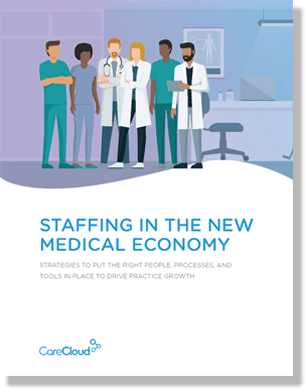Electronic health records (EHRs) are the digital form of paper-based medical records. They have all your patients’ data, such as medical history, medicines they are using, and much more. They are one of the most notable platforms as they assist in centralizing patient records, due to which they have become a must-have for every modern-day practice. To streamline the practice’s workflow and daily tasks, an EHR is one of the best options.
It doesn’t matter if you are looking to integrate a new solution or just checking the most popular features; security and privacy are the first and most important things to consider. These two features are of extreme importance as the software will be responsible for handling patient data. Ensure that the EHR vendor you select is offering training so the staff will quickly get used to it. Usually, EHR systems are complex, so healthcare practices need to ensure they are getting assistance to ease the learning curve. From providing security and support to saving time and improving patient care, the following are the key features that a practice must need to take a look at in an EHR system:
Electronic Health Records (EHR) Key Features:
-
Customizable Templates
One of the core features of EHR systems is creating templates. A top-notch tool is equipped with customized templates so that healthcare professionals can quickly fill in the required information. With the help of these templates, you can streamline your charting process. Another plus of having customizable templates is the freedom to create your templates. This feature speeds up the entire process and helps practices improve their efficiency.
-
Round-the-clock Access
Practices are looking to integrate a solution available round the clock to access. You can access cloud-based electronic health records (EHR) platforms from anywhere with the help of the internet. Besides, it gives medical professionals a clear picture of their patient’s data inside and outside the medical facility. Top-notch EHR software will assist providers in setting up customizable reports and generating them daily.
These reports will be generated based on all the information the software collects. This information includes a history of patients, lab results, demographics, and other related data. Before making a final call, the right strategy is to ask the EHR vendor about the function of their solution and if the practice can customize it as per requirement.
-
Communication Between Physicians
Besides being able to access EHR systems outside of traditional settings, practices should ensure secure communication between physicians. This option of sending patient data to another physician securely help providers in making in-time decisions. Another feature to take a look at is a centralized communication system. This option provides the freedom to providers to not only communicate but also view the latest patient data.
-
E-prescription
Having an e-prescription feature is one of the best to look for in an electronic health record system. Using this, the patients can quickly get their medications, as this option also helps in communicating directly with pharmacies. Moreover, EHR is used for prescribing as it notifies the physician about potential medication reactions. The best thing about EHR is that it will also suggest an alternative.
-
Patient Portals
Patient portals are an excellent tool to educate patients and provide them with a secure platform to share their medical information with their providers. Moreover, the patient portal provides them with all the information about lab results, allergies, medications, appointments, and more. It is designed to knock the administrative burden off by assisting patients in booking their appointments.
-
Scheduling
Electronic health record systems are also used widely to keep track of appointments. Practices can integrate this solution to help patients notify about follow-up visits and reminders about upcoming appointments, resulting in decreased no-shows. Practices can customize scheduling features as per their needs. It is designed to enhance the practice’s productivity by streamlining admin workflows.
Bottom Line
This guide discussed tips to find the best electronic health record system for small practices. We have provided a detailed overview of all the benefits, such as scheduling, patient portals, e-prescription, and much more. These features help practices improve productivity and efficiency by centralizing many admin tasks. Moreover, EHR is also used to organize calendars and helps increase profitability by minimizing no-shows.



